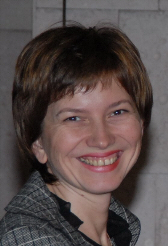CONFLICT-TALK STUDENTS AND TEACHER’S ROLE IN ITS ORGANIZATION
Аннотация
Ключевые слова
Литература
Becker E.S. The importance of teachers’ emotions and instructional behavior for their students’ emotions -An experience sampling analysis. Department of Empirical Educational Research, University of Konstanz, Germany, 2014. P. 15-26.
Collin R. Activism, emotion, and genre: Young adults’ composition of Urgent Action Letters. Virginia Commonwealth University, USA, 2014. P. 18-30.
Koole T. Responsiveness in teacher explanations: A conversation analytical perspective on scaffolding. University of Groningen, Faculty of Arts, The Netherlands, 2014. P. 57-69.
Kuusisaari H. Teachers at the zone of proximal development -Collaboration promoting or hindering the development process. Department of Teacher Education, University of Helsinki, Finland, 2014. P. 46-57.
Struyven K. Teachers’ exit decisions: An investigation into the reasons why newly qualified teachers fail to enter the teaching profession or why those who do enter do not continue teaching. Vrije Universities Brussel, Educational Sciences Department (EDWE), Brussels, Belgium, 2014. P. 37-45.
Аминов Д., Оганян Р. Молодежный экстремизм. М.: Индрик, 2005. 124 с.
Андреева Г.М. Социальная психология. М.: Индрик, 2007. 123 с.
Бондырева С.К. Толерантность (введение в проблему). М.: Смысл, 2003. 143 с.
Братченко С.Л. Введение в гуманитарную экспертизу образования (психологическое). М.: Смысл, 1999. 123 с.
Гутарева Н.Ю. Психолого-педагогические условия сохранения психического здоровья студентов на основе интерактивных лексических игр//В мире научных открытий. № 1.4 (37) Красноярск: НИЦ, 2012. (Гуманитарные и общественные науки) 348 с. С. 293-304.
Гутарева Н.Ю. Применение интерактивных лексических игр как средства адаптации студентов к обучению иностранному языку в вузе//В мире научных открытий. № 1.4 (37) Красноярск: НИЦ, 2012. (Гуманитарные и общественные науки) 348 с. С. 237-248.
Гутарева Н.Ю. Интерактивные средства обучения иностранному языку в вузе//В мире научных открытий. № 9 (45) Красноярск: НИЦ, 2013. (Гуманитарные и общественные науки). 366 с. С. 337-347.
Гутарева Н.Ю. Организация интенсивного обучения английскому языку в вузе//В мире научных открытий. № 9 (45) Красноярск: НИЦ, 2013. (Гуманитарные и общественные науки). 366 с. С. 326-336.
Дударев В.В. Активные формы социально-психологического обучения/Отв. ред. В.В. Дударев. М.: Индрик, 2006. 134 с.
Емельянов Ю.Н. Активное социально-психологическое обучение. М.: Индрик, 2005. 127 с.
Климов Е.А. Конфликтующие реальности в работе с людьми (психологический аспект). М.: МПСИ, Воронеж: “МОДЭК”, 2001. 192 с.
Колесникова И.А. Коммуникативная деятельность педагога. М.: Академия, 2007. 336 с.
Куимова М.В. Формирование социокультурной компетенции на занятиях иностранного языка (на примере сказок)//В мире научных открытий. 2014. № 1.1 (49). С. 625-633.
Обозов Н.Н. Психодиагностика личности. СПб: АППиМ, 1998. 96 с.
Оганесян Н.Т. Методы активного социально-психологического обучения: тренинги, дискуссии, игры. М.: Высшая школа, 2005. 153 с.
DOI: https://doi.org/10.12731/wsd-2014-9.4-10
Ссылки
- На текущий момент ссылки отсутствуют.
(c) 2016 В мире научных открытий
ISSN 2658-6649 (print)
ISSN 2658-6657 (online)






